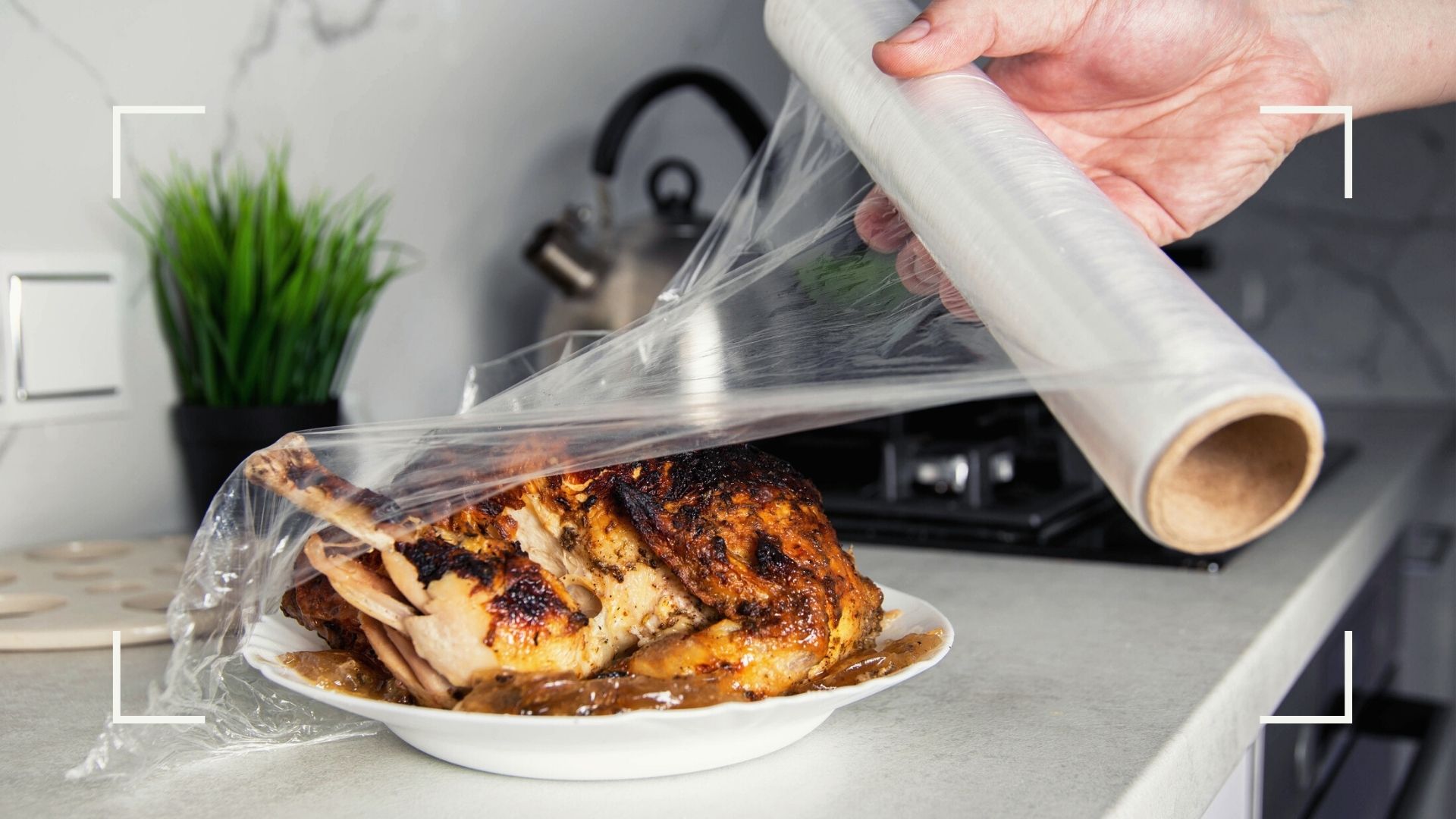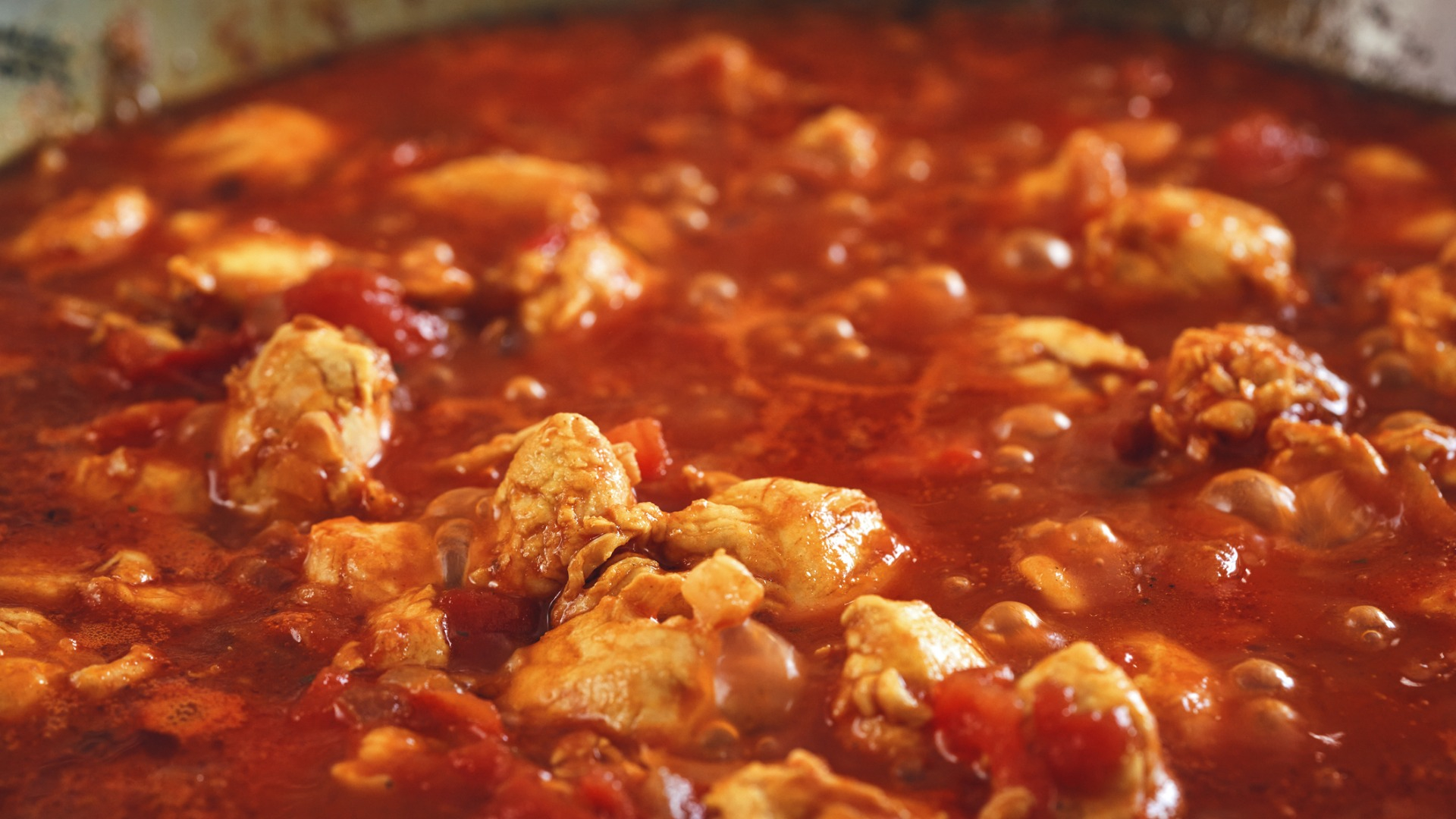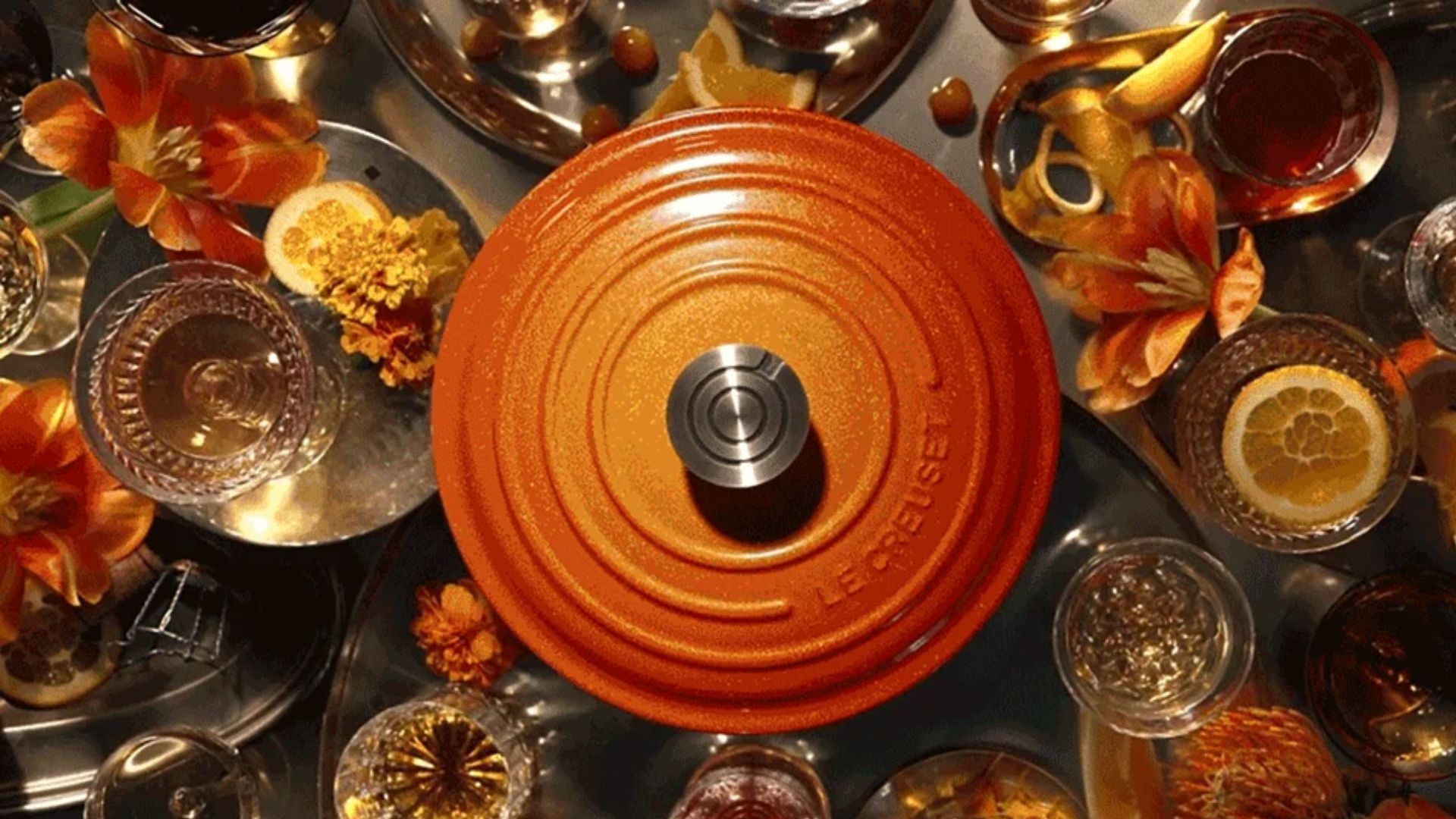How long does cooked chicken last in the fridge? When to bin your leftover meat
Experts explain how long cooked chicken lasts in the fridge in our comprehensive guide to safely storing leftover poultry

Anna Paul
If you’ve ever found yourself asking how long cooked chicken lasts in the fridge, our guide is here to help.
Chicken is a staple ingredient of many of our favorite meals, ranging from pasta dishes and stews to salads and soups. Odds are that even if you have used a chicken or turkey size guide before buying your poultry, you will have spare meat by the time you’ve finished serving up.
Storing leftover cooked chicken or even a rotisserie chicken is a good idea because as well as tasting delicious, the white meat is also packed with goodness.
“Chicken is a good source of protein and lower in fat compared to other meats,” explains Registered Nutritionist Rhiannon Lambert. “It’s also a source of iron, zinc, selenium and vitamin B12. Opt for skinless chicken wherever possible to cut down on saturated fat.”
There isn’t just a dietary benefit: using up all the meat from this roast can also have a range of other positive impacts, too.
“Using up every part of what you buy is a more budget-friendly way to cook,” explains Jane Cook, founder of food and sustainability blog, Hungry City Hippy. “Paying more for the meat we eat but using it all up also respects the time and effort which goes into raising an animal fairly.”
Of course, it's not healthy or cost-efficient if you don't store it correctly, though. Here's all you need to know about how to store your cooked chicken safely.
Sign up for the woman&home newsletter
Sign up to our free daily email for the latest royal and entertainment news, interesting opinion, expert advice on styling and beauty trends, and no-nonsense guides to the health and wellness questions you want answered.
How long does cooked chicken last in the fridge?
The general consensus from experts and official bodies is that cooked chicken can be left in the fridge for a maximum of three to four days. But it's worth noting that food hygiene rules vary across different countries.
“Provided your fridge is working efficiently, you should be fine to keep cooked chicken (which has been cooled quickly and covered properly) in the fridge for this amount of time,” recommends Jane. “My fridge is always set to 3°C (approx. 37 °F) which keeps things properly chilled.”
This is corroborated by the US Department of Agriculture (USDA). Official advice states that food should be eaten within three to four days, as "refrigeration slows but does not stop bacterial growth." Meat should be kept in a fridge set to 40°F or less.
It is worth noting that food hygiene rules vary across the country, and in the UK, it's recommended that you store cooked poultry in the fridge for no more than two days. A spokesperson from Love Food Hate Waste, which works with the Food Standards Agency (FSA), confirmed this to w&h. Once again, fridges should be set to 5°C or below (approx. 41°F).
Can you eat cooked chicken after 7-10 days?
It's not recommended that you eat cooked chicken in the fridge after 3-4 days even if you think it looks okay. If you're not planning to eat it imminently, instead think about freezing the meat.
“You can freeze cooked chicken for a long time,” explains Jane. “But it will taste best if eaten within three to six months. If it's frozen for longer it will still be safe to eat, but the texture may have changed slightly—I prefer to add it to a soup or curry in that scenario, so it stays moist.”
When your meat is ready to defrost, allow it to thaw fully in the fridge and only cook it when all the frozen lumps have gone. When you do cook it, ensure you reheat it until it's piping hot. While you can use the 'defrost' setting on the microwave, you should never let it thaw at room temperature.
How can I tell if cooked chicken is no longer safe to eat?
Timelines aside, there are a few other tell-tale signs that cooked chicken is no longer suitable for eating. The first is the date: if the chicken is past its use by date, then err on the side of caution and refrain from cooking it. Other things to look out for include:
- Changes in color: A grey or green tinge can be indicative of bacterial presence.
- Changes in texture: If your chicken has a slimy texture, it’s no longer safe to consume.
- Changes in smell: A sour or ammonia-like aroma is a sign that your chicken has gone off.
If you spot any of the above, dispose of the chicken as it is not safe to eat.
How to store cooked chicken safely
If you’re wondering which parts of a cooked chicken can be preserved, the answer is all of it. From the skin and bones to the meat within, there’s not a single part of your cooked chicken that has to be thrown away, reveals Jane.
“Leftover meat can go into pies, soups, and curries,” she says. “Cooking juices can be used to make a flavourful gravy. The skin can be saved to make crispy crackling, while the bones can be chucked into the freezer and saved to make a delicious stock for another day.”
As with anything, storing your cooked chicken will take a quick bit of preparation to ensure you’re doing it in the safest possible way.

How to store cooked chicken
1. Allow the chicken to cool for two hours
Once the chicken has been cooked, allow it to cool at room temperature for no longer than two hours. If it’s been left out longer than this, it’s advisable to throw the food away as pathogenic bacteria grows rapidly at this temperature. The chicken might look and smell okay after this time, but don't be fooled: it's not advisable that you eat it. This advice is echoed by health bodies across the board.
After you've cooked the meat, wait until the steam has stopped rising, and then place it into a sturdy, air-tight container to minimize the chances of contamination.
2. Label your leftovers
Make sure you keep a note, either on the container itself or on a calendar of when the chicken went in the refrigerator or freezer and when it should be eaten.
3. Store it away from raw meat
When storing leftover meat in the fridge or freezer, keep cooked meat away from raw meat. If you're storing it in the fridge, ensure the cooked meat is on the top shelf. In both cases, it's imperative that it's covered. This will also reduce the risk of contamination.
How to use leftover chicken
Looking for inspiration for incorporating leftover chicken into a delicious and nutritious meal? Rhiannon has some ideas.
“If you don’t want chicken as the hero ingredient, you could always consider adding it to a salad, traybake or pasta dish,” she recommends. “This will increase the protein in your meal, which may help with supporting a balanced diet.”
Jane also agrees that there’s a wide realm of possibility when it comes to incorporating cooked chicken into dishes. “I always try to buy the biggest chicken I can find and use the leftovers for a range of things. I love to make shredded roasted chicken sandwiches (with lots of mayo, salt and black pepper), whilst my husband makes a great chicken, cider and tarragon pie, with a simple store-bought puff pastry lid.”
Other recipe ideas include delicious Greek-style souvlaki wraps with spiced chicken, punchy sesame chicken noodle salad, or a traditional one-pot chicken with wine.
Katie Byrne is a contributor to woman&home and a writer whose interests span everything from homes and interiors, to pop-culture, travel, business and self-development. A former digital editor, her freelance journalism has featured across a wide range of print and online titles, including Raconteur, Digital Spy and more. When she's not writing, she loves reading (and has the groaning bookshelves to prove it...), dreaming up new décor ideas for her flat and devouring Netflix's latest true-crime series with her husband. You can find her on Twitter: @katie_b123.
- Anna PaulFreelance editor and writer
-
 Le Creuset has taken the gold standard literally — their 100 year launch features real gold and an iconic designer collaboration
Le Creuset has taken the gold standard literally — their 100 year launch features real gold and an iconic designer collaborationLe Creuset have turned 100 years old and to celebrate they have launched a new colour — Flamme Dorée — as well as a coffee table book with designers Assouline
By Laura Honey Published
-
 This chic, Brazillian perfume brand is our beauty team's secret to smelling expensive and unique
This chic, Brazillian perfume brand is our beauty team's secret to smelling expensive and uniqueFrom salty accords to modern twists on tuberose, there's a Granado perfume for every preference - but these 9 blends have our heart...
By Naomi Jamieson Published